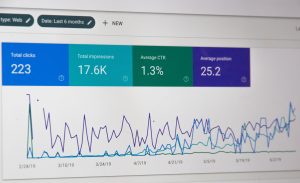Ways to Optimise your Website for Search Engines

Once you’ve launched your website, the next thing on your mind is probably how to make it do better in search engines. It takes time and a specific set of skills for you to create search-friendly pages effectively. Search Engine Optimisation or SEO entails on-page and off-page techniques for your pages to rank for specific keywords.
There isn’t a specific strategy that can guarantee you to rank number one on a search engine. It varies from one website to another. On the other hand, there are a few practices you can do to improve your rankings.
Disavow Backlinks
Backlinks, or your website link from other sites, helps search engines determine how relevant your site is. Spammy or low-quality backlinks may result in a penalty. To avoid this, you can ask the site’s webmasters to remove your link or to add “rel=nofollow” in the HTML. If it doesn’t work, there is a disavow tool in Google that allows you to tell search engines to ignore those links instead.
Remove Penalties From Google
There are tools like Google Webmaster Tools that help you check if a penalty has hit your pages. If it has, you can pinpoint the cause of the problem and fix it while keeping in mind Google’s webmaster guidelines.
Update Your Metadata
Back when you were designing your website, each page consists of a space between the <head> tags where you can insert metadata or other content about your page. You must always update your metadata since your site may change over time. When it comes to your title metadata, make sure you’re using relevant ones that are rich with keyword phrases. Optimised metadata shows users what your page is about and can increase the amount of people that click through to your website.
Boost On-page SEO
It is important to optimise the content and HTML source code. You can utilise other elements like metadata, title tags, and image alt text. You can also put the keyword you’re trying to rank in URLs, titles, and other contents on your page. Make sure that you do this naturally, as doing this too much can be considered spam.
Create Quality Content Consistently
You need to start creating content that is helpful or engaging to the audience. Google’s algorithm favours contents that most users like. Once you have produced content for your audience, you tend to drive conversions actively. Quality content does not necessarily mean a new one. You can re purpose old material as long as they are helpful or substantial to the audience.
Revamp Into a Link-Worthy Site
Create relevant links within the text on your pages. For example, your “click here” links. This phrase has little to no search engine value. However, if you put a location or the name of services instead, you can improve your search engine rankings. Also, keyword-rich links add more value to the readers.
SEO is a Process
Ranking up does not happen overnight. It takes consistent effort to improve your ranking continuously or to stay on the top results. Aside from being an ongoing process, SEO should be driven by the right strategy. Hence, if you need help in coming up with the perfect SEO strategy for your business, Tailored SEO can assist you in getting real results in no time.
